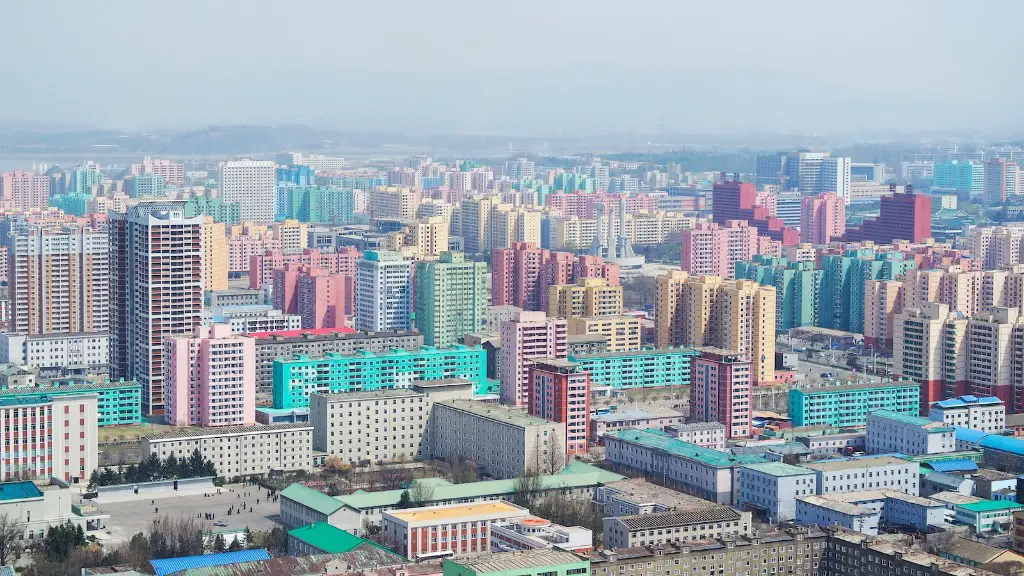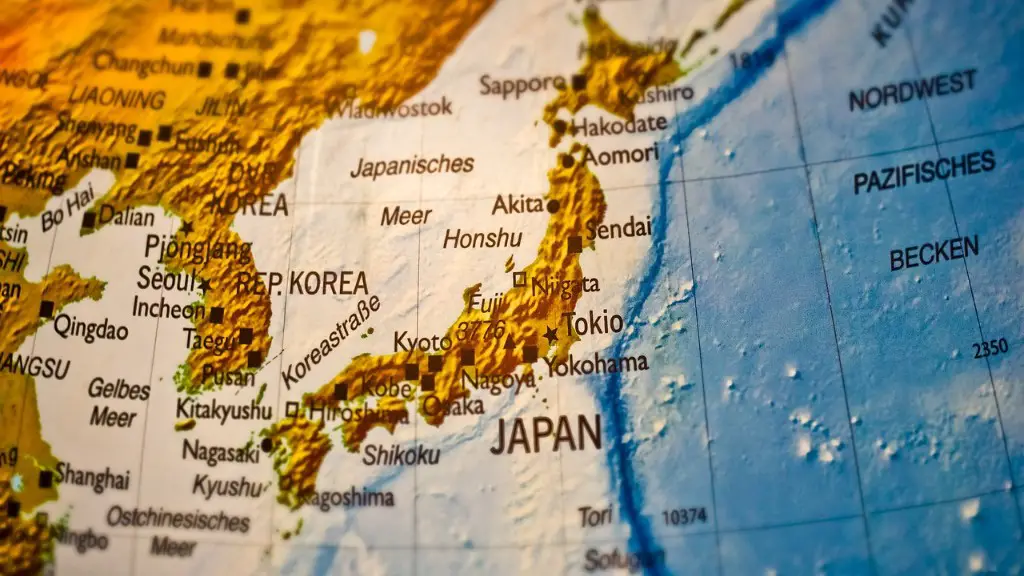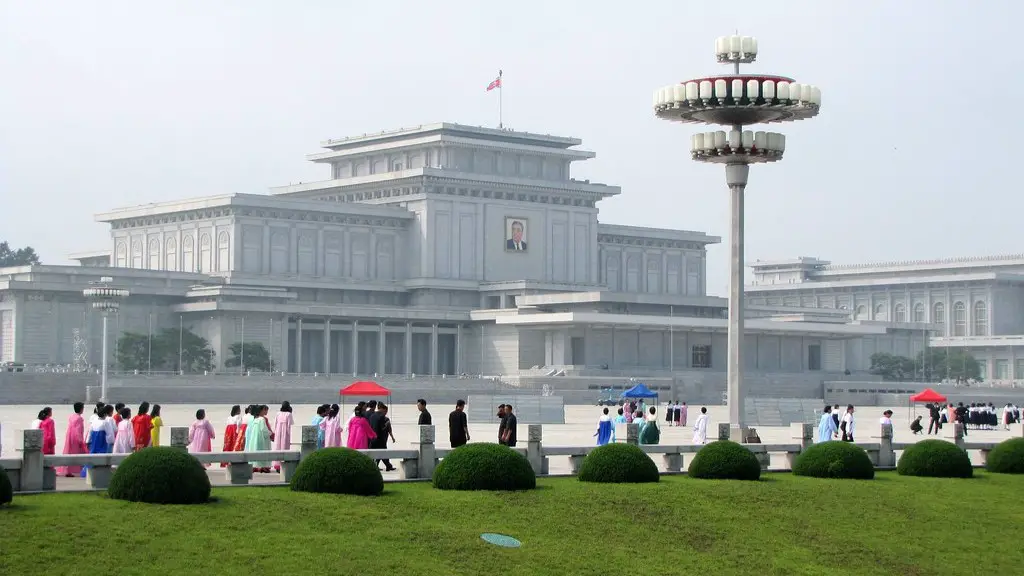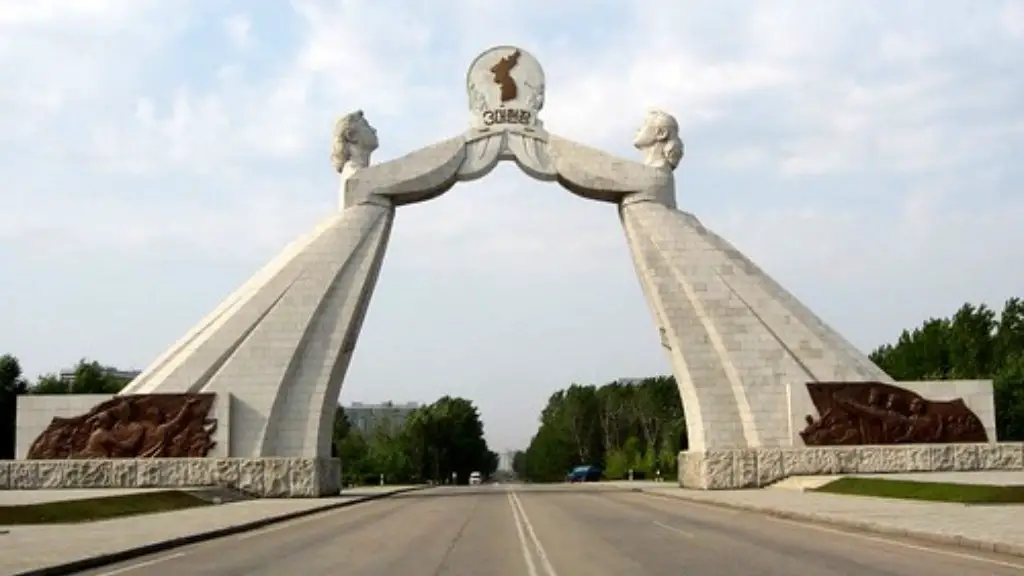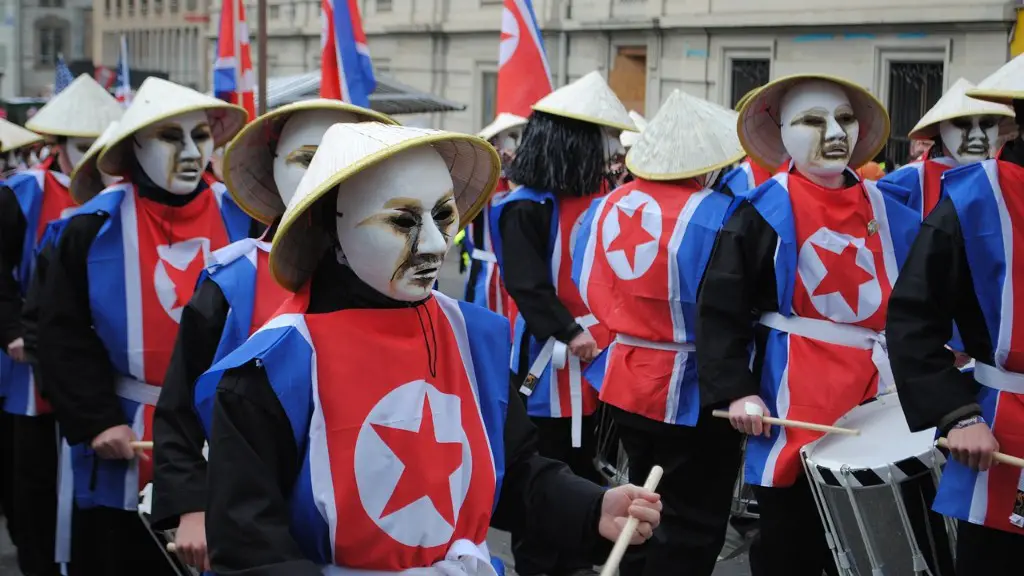Background Information
North Korea is one of the most oppressive and brutal regimes in the world. It has been ruled for decades by the Kim family, which has held absolute power over the population. These rulers have established a vast network of prisons, surveillance, strict censorship, and harsh propagandistic indoctrination. All these systems are held together by a pervasive sense of fear and control, and have resulted in immense suffering of citizens and a complete lack of freedom.
Data
In 2019, Human Rights Watch reported that North Korea had “one of the worst human rights situations in the world”. It reported that North Koreans are subjected to arbitrary arrest, torture, executions, and forced labor. They are also denied basic freedoms such as freedom of expression, assembly, and association. These abuses of power have been going on for decades and are considered crimes against humanity by international law.
Perspectives From Experts
Experts have offered various opinions as to why North Korea has remained so cruel. Many point to the culture of fear that exists in the regime, which makes citizens obedient and limits their ability to express dissent. Others argue that the Kim family has used its powers to maintain loyalty and prevent uprisings through coordinated purges and censorship. Still others point to North Korea’s economic hardship and its complete lack of international support as factors feeding the cruelty of the regime.
Analysis
It is clear that North Korea has become a regime of brutal cruelty through a combination of factors. At the heart of this is the Kim family’s use of absolute power and its restrictions on freedom. At the same time, North Korea’s economic situation and lack of international support further bolster the oppressive nature of the regime. All of these factors have contributed to a system of unparalleled cruelty, resulting in immense suffering within the country and an atmosphere of fear and subjugation.
Human Rights Abuses
North Korea has been accused of committing numerous human rights abuses in recent years. According to reports by the United Nations and human rights organizations, North Korea is responsible for arbitrary detention, torture, executions, and other forms of ill-treatment of prisoners and political dissidents. These abuses are in direct violation of international law and have been condemned by the UN and other governments. Furthermore, North Korea has also been accused of denying citizens their basic civil and political rights, such as freedom of speech and assembly, access to information, and the right to peaceful protest.
In addition, reports suggest that North Korea has been involved in kidnapping and extrajudicial killings of citizens from other countries, as well as attacking and disabling governments and ships abroad. These reports suggest that North Korea has been willing to use violent methods to achieve its policy objectives, both inside the country and internationally.
Finally, North Korea is also accused of engaging in torture and ill-treatment of people in custody. This includes beatings, exposure to extreme temperatures, and various forms of deprivation of food and medical care. All of these constitute egregious violations of basic human rights and are indicative of the cruelty of the North Korean regime.
Propaganda
The North Korean regime has utilized propaganda extensively to instill loyalty in its citizens and keep them in line. Through their state-run media, North Korean citizens are bombarded with messages that are designed to glorify the state and its leaders and encourage obedience. North Korea produces a variety of propaganda materials, including videos and books, that are designed to instill loyalty and patriotism. Furthermore, North Korean citizens are subjected to harsh propaganda campaigns that seek to demonize outside governments and encourage patriotism.
In addition, North Korea has also used propaganda to instill fear in its citizens. Through its state-run media, citizens are bombarded with messages of fear and distrust of the outside world and fear of punishment for any form of dissent. This propaganda has resulted in a pervasive climate of fear and mistrust, which has been instrumental in keeping citizens in line and preventing any form of dissent.
Furthermore, North Korean propaganda has also been used to glorify the country’s leaders, emphasizing their power and presenting them as infallible figures who should be revered and obeyed. This type of propaganda has been instrumental in maintaining loyalty to the regime and discouraging any form of dissent.
Economic Struggles
The economic situation in North Korea has been dire for decades. The country is deeply impoverished and has experienced severe food shortages due to its isolation from the international community and lack of access to resources. Furthermore, the economy is heavily centralized and dominated by the government, leaving citizens with few opportunities to earn a living.
This economic instability has contributed to the suffering of North Korean citizens and has been instrumental in maintaining the regime’s oppressive system of control. By keeping citizens in a state of poverty and deprivation, the regime has been able to limit any form of dissent and ensure obedience. This has been a major factor in the country’s cruelty and human rights abuses.
Furthermore, North Korea’s economic situation has been exacerbated by its international isolation. The country is heavily sanctioned by the international community, which has further weakened its economy and prevented it from accessing resources and aid. This has led to further suffering for North Korean citizens and has only served to reinforce theKim family’s tightened grip on power.
Military Presence
The North Korean regime has one of the largest militaries in the world. This massive force not only serves to display the power of the state, but is also instrumental in maintaining power. The military serves as a tool of repression, and is used to intimidate and control citizens through its presence. The military is also used to quell any form of dissent and ensure obedience, and is integral to the regime’s cruelty and disregard for human rights.
The military has also been instrumental in militarizing the country and maintaining a state of war readiness. North Korea has often sought to maintain a state of tension by engaging in confrontations with other countries and engaging in propaganda campaigns intended to instill fear and loyalty. This state of tension has had a profoundly negative effect on North Korean citizens, as it has further limited their freedom and exposed them to potential violence.
Finally, the North Korean military is also responsible for a variety of human rights abuses. Reports suggest that the military has been involved in extrajudicial killings, torture, and other abuses, suggesting that it has played a role in the regime’s brutality.
International Pressure
Despite widespread condemnation of North Korea’s human rights record, the international community has been largely ineffective in imposing punitive measures on the country. The United Nations and other governments have imposed economic sanctions and diplomatic pressure on North Korea in an effort to force the regime to change its ways, but so far these efforts have had little effect.
Furthermore, North Korea has been able to use its aggressive and confrontational stance to deflect international condemnation and avoid scrutiny. It has been successful in using its nuclear capabilities and provocative behavior to deter any potential attempts at intervention and to prevent any real pressure from being exerted on the regime.
Finally, North Korea has also been successful in evading justice for its crimes against humanity. Despite numerous accusations of torture, forced labor, and other human rights abuses, North Korea has been able to avoid being held accountable for its actions. This lack of accountability has only served to embolden the regime and further entrench the atmosphere of cruelty.
